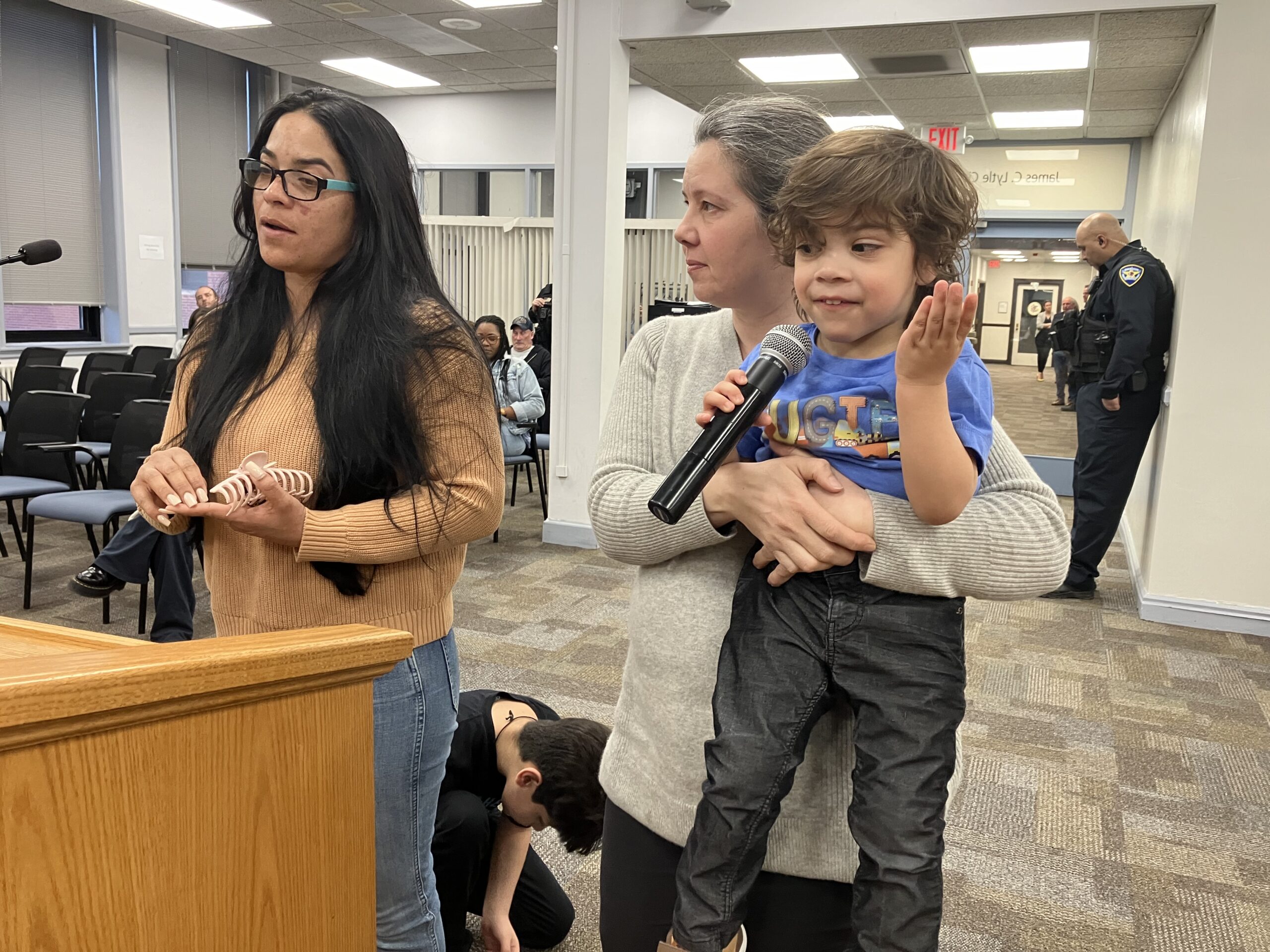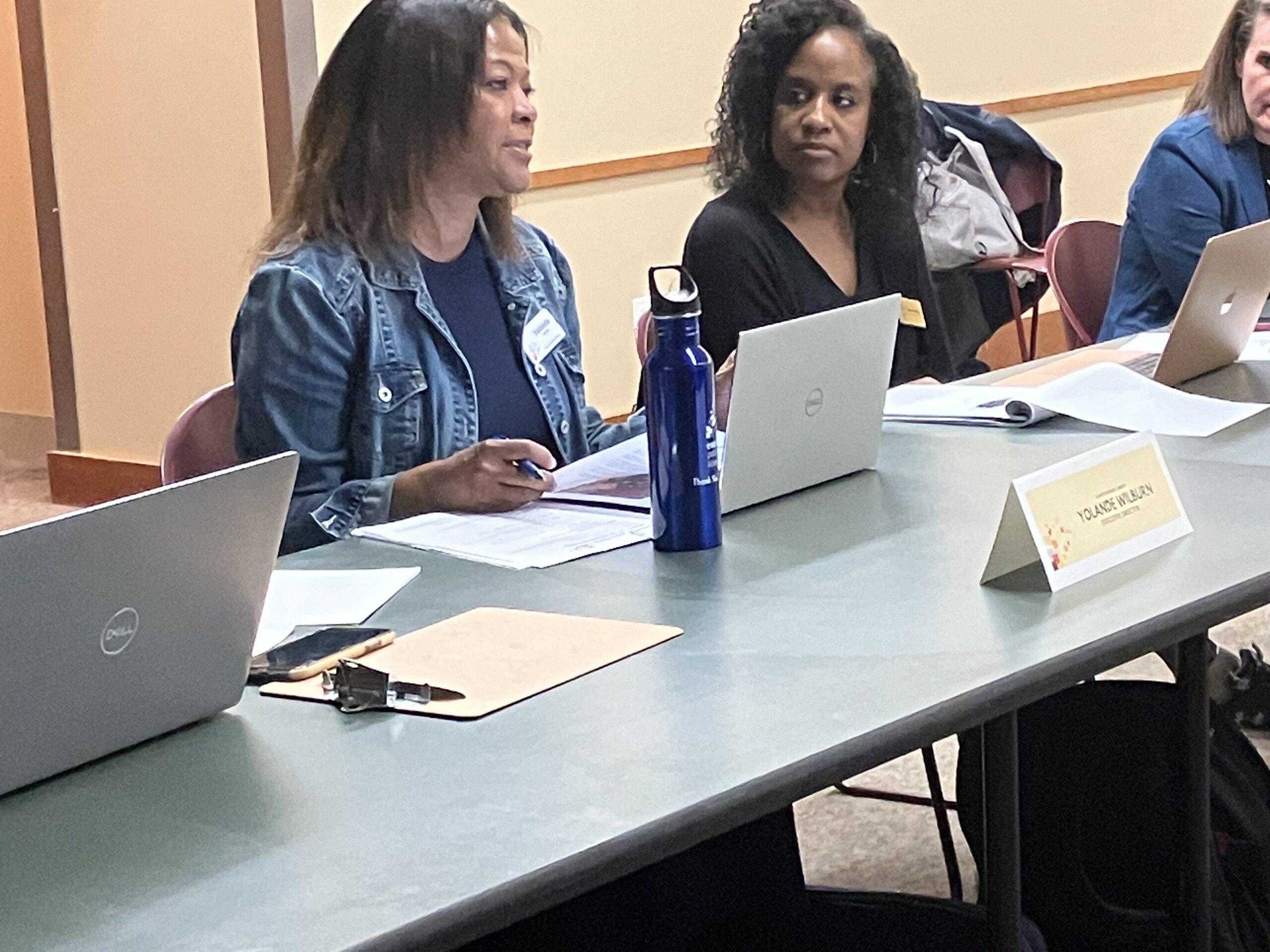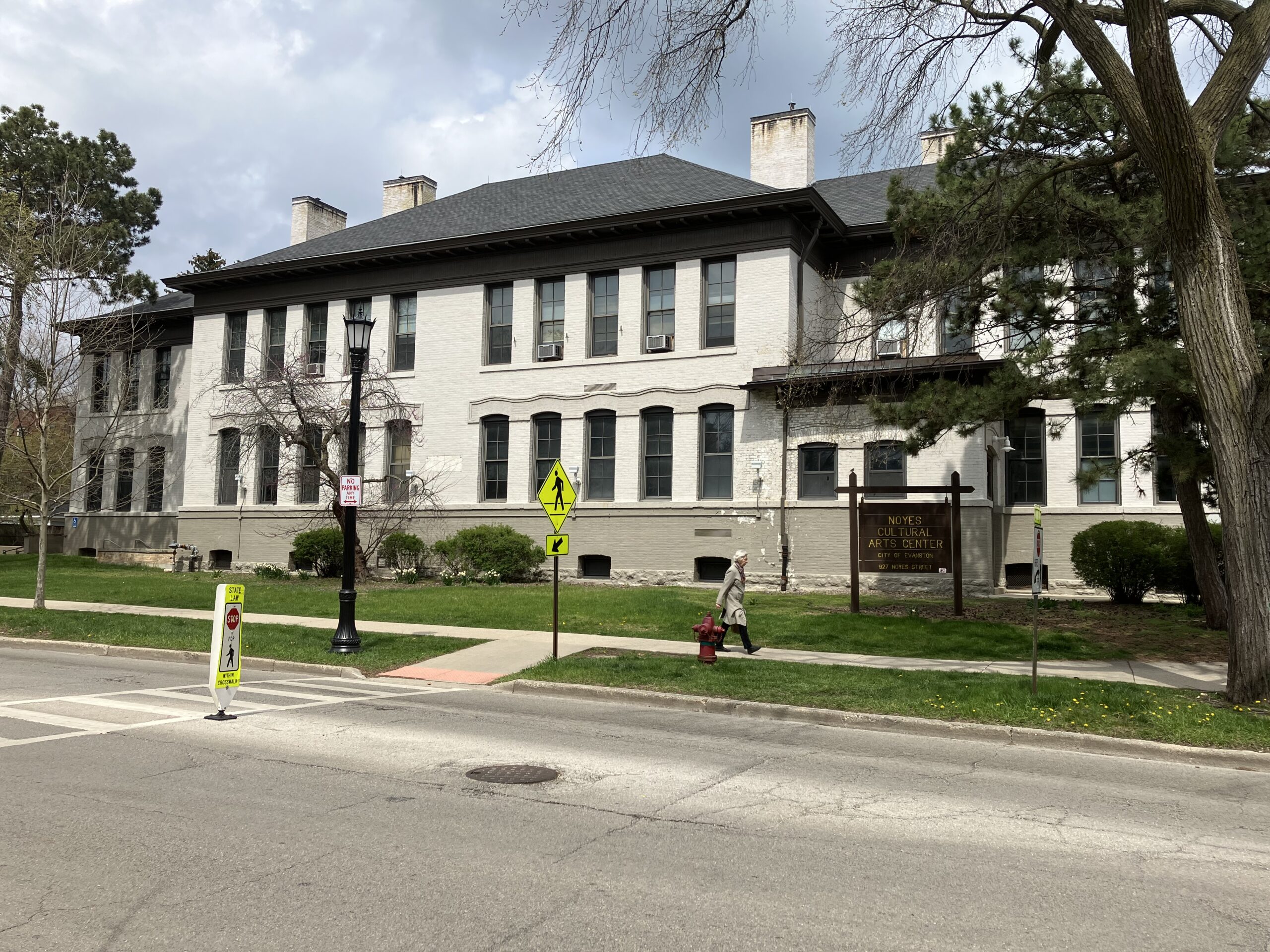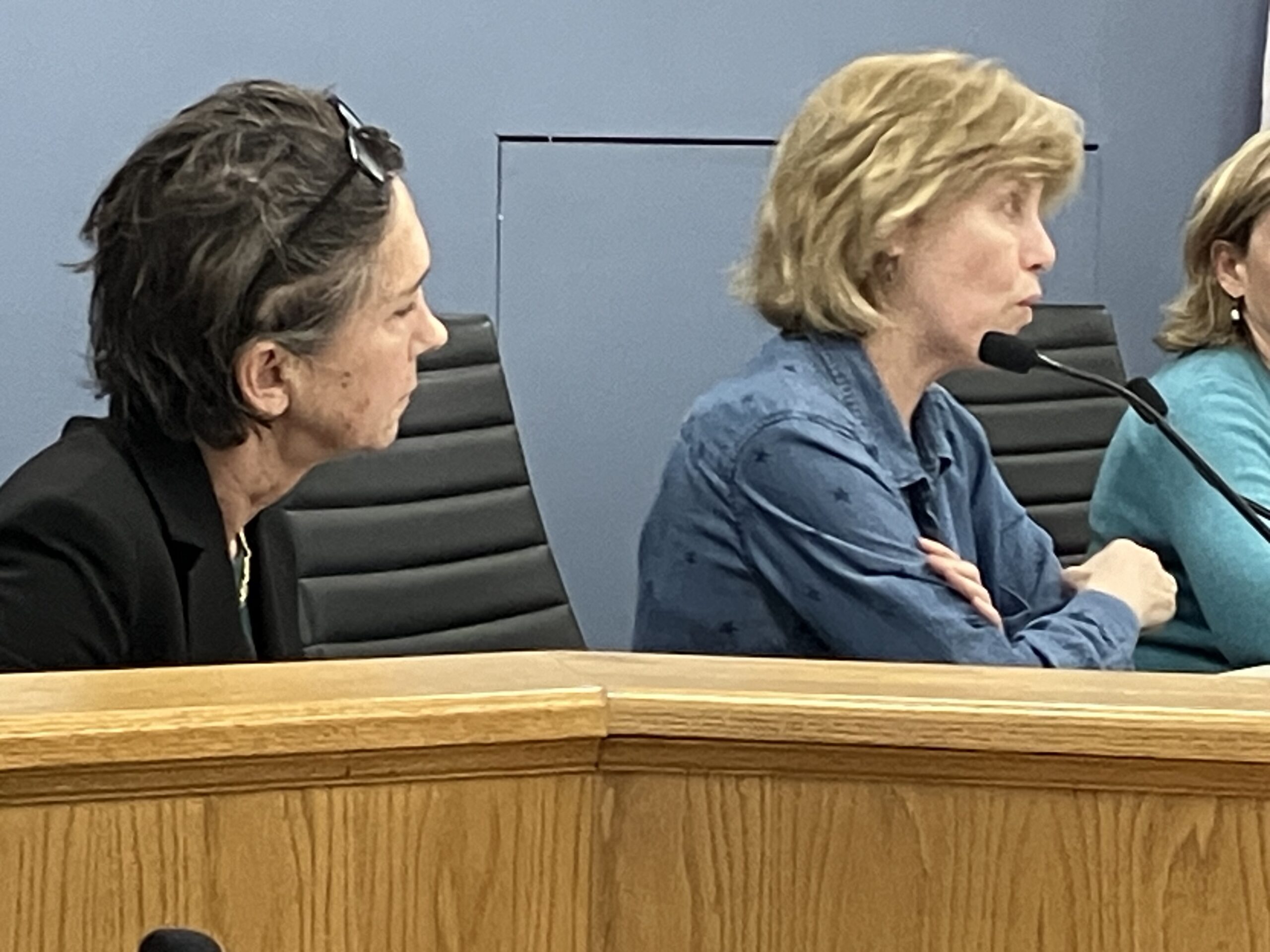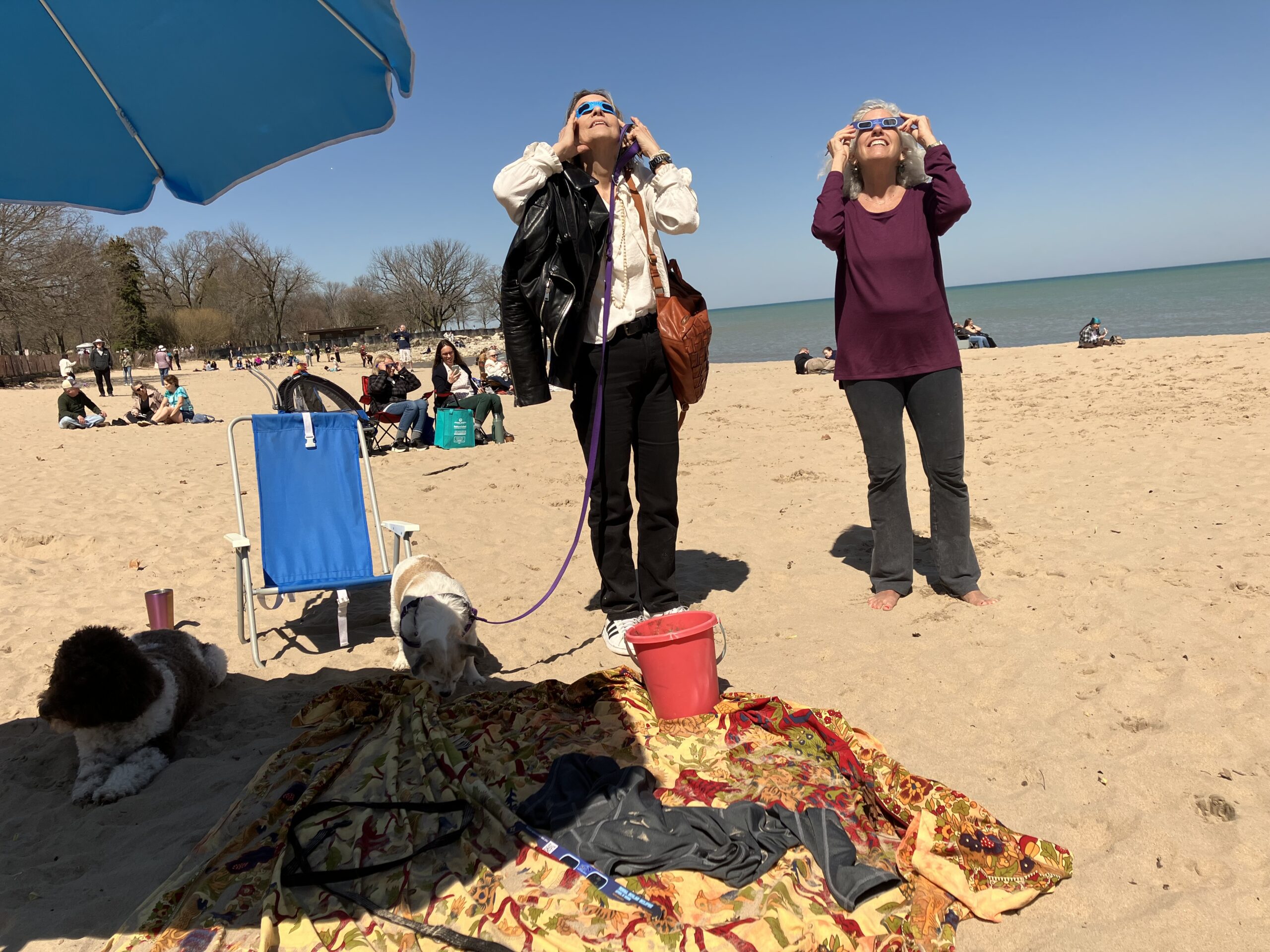By Bob Seidenberg
Evanston City Council members took a step back Monday on a proposed plan to convert a vacant downtown office building into a temporary shelter to house migrants, asking whether the site was the right fit.
The council, down to five members due to illness, reluctantly declined to give explicit directions to city Policy Coordinator Alison Leipsiger to pursue a $20 million grant that Cook County has made available for suburbs in an effort to support migrants, the deadline for which is April 19.
At the same time, several council members stated their resolve to find solutions to the issue, with the city continuing to examine the building at 1020 Church St. and other feasible sites.
“With the state of the world, Evanston I know, we always want to be the saviors, and I appreciate that,” said Second Ward Council Member Krissie Harris, who was born and raised in the city. “We have to have a plan though, and I don’t want to rush into something not having a plan.”
The council discussion was their first full airing of the issue.
Since August 2022, the ongoing crisis with new arrivals has been “a really deranged politically motivated effort on the part of Republicans, especially the Republican governor of Texas, to use human beings in an effort to affect election outcomes,” said Mayor Daniel Biss, introducing the discussion Monday.
“We all know this. We’ve all read about this. We’ve read about the challenges in the city of Chicago trying to find appropriate humane solutions for the arrivals of new forms of housing and a variety of issues.
“And the posture that I’ve represented is that this is a moral crisis, that we as a city have a responsibility to figure out if we can help, and try to do what we could to be part of the solution. And so quietly we’ve been looking for opportunities to do that.”
Leipsiger “has gone down a lot of blind alleys, looking at buildings that would allow the city to do that,” Biss said. The 1020 Church St. building passed the first test for meeting the city’s goals, he said, explaining his reason to bring the issue before the council.
Building would need significant repairs
In a memo and presentation at the meeting, Leipsiger said the city of Chicago has reached out to neighboring municipalities to assist in the crisis.
Leipsiger told council members the currently vacant Church Street building would need to be retrofitted to convert it to a shelter, requiring fire sprinklers, more bathroom and shower stalls as well as mold remediation. Staff found at least one roof leak, she said.
The city would also need to rely on a nonprofit to manage the temporary shelter. “Connections for the Homeless has been approached to explore their interest and capacity,” Leipsiger said in her report.
Connections has said it may be interested in running the shelter, Leipsiger wrote, but would need $2 million a year from the Cook County grant as well as support from other organizations with expertise in assisting new arrivals.
In discussion, Council Member Juan Geracaris (9th Ward), a first-generation Argentinian immigrant, spoke in support of the proposal, maintaining “the very least we can do is apply for this grant and see what funding we are approved for and start to work towards exploring this possibility of a shelter.”
Geracaris said he was one of the officials working with Leipsiger to find a suitable site last summer when “it seemed like an inevitability that we might be receiving migrants here.” He said the need to provide adequate showers and bath makes it really hard to find a suitable site.
“You pretty much have to find an empty hotel or an empty apartment building, which we know there are not very many apartment buildings in Evanston,” he said. “So the fact that we have a site that’s feasible, even for 60 people, is something we should explore.”
Council Member Bobby Burns (5th Ward), also thought a suitable site was something the city should pursue. But, he added, “There’s a lot of information we don’t have” to justify moving forward on the 1020 Church St. site.
He compared the situation to the council’s approval of a license for Connections for the Homeless to operate the area’s first permanent homeless shelter at the Margarita Inn where “we had a ton of information about how much we needed to raise and the cost of build out and just quite a bit of information that we don’t have at this point. If there’s a way to getting that information without fully committing to this building, I think that would be worth doing.”
Concern about impact on the ward
Council Member Jonathan Nieuwsma, in whose 4th Ward the Church Street site is located, raised concern about the impact of the shelter on the ward, which includes that part of downtown.
“I’m in a bit of a bind here because my heart wants to do the right thing,” he said. “But I also want to acknowledge the fact that we are already punching well above our weight, and not only as a community of Evanston but in this particular part of Evanston,” he said, citing Hilda’s Place, the city’s first temporary homeless shelter at 1458 Chicago Ave.; and Peer Services, the substance abuse treatment at 906 Davis St., around the corner from the Church Street building.
“We are already doing more than our fair share,” he pointed out.
Furthermore, he said downtown is at a delicate point with the city working to redevelop and reenergize the area.
Northlight Theatre, which is to be located next to the Church Street property and is aiming to return to the city in 2026, “needs to be our shining star,” he said. “And I’m afraid that if we put a shelter next door to it, we would put a blanket over that North Star.”
He expressed hope that there is another location the city could find to address the issue.
One immigrant’s story
During citizen comment earlier in the meeting, several speakers urged council members to move forward on the grant, including Dyonne Indra Blanca, a new arrival from Venezuela, who said she had to make a perilous journey on foot with her children, 2 and 8 years old, through seven countries on her way to Chicago.
Blanca joined Debra Michaud at the lectern. Michaud, a resident of the Ninth Ward, runs a new non-profit group called Refugees for Chicago, which has been working with asylum seekers.
Blanca told council members she arrived here eight months ago, first living in a shelter. Her first priority was acquiring legal papers, she said. “When I lived in the shelter, I didn’t know what is the school for my kids.” She’s now attending Truman College “while also working cleaning house.”
Michaud said she invited Blanca, who volunteers at the Refugees organization, to the meeting to bring a human face to the discussion. She said her group just opened a free store in the Uptown neighborhood of Chicago, providing vitamins and nutrition support, clothing and basic household items “and in doing that, we have gotten to know many of the new arrivals.”
As the new immigrants arrive, she said, “we desperately need temporary housing so that they can get settled, then get settled into apartments. It’s very complicated to get them into apartments because most of the landlords don’t want to rent to them. So the city of Chicago is just saturated with this crisis. So we’re really hoping the suburbs are going to step up to the plate, relieve Chicago a little bit, do our part.”
Keep everything ‘on the table’
At the end of Monday’s discussion, Biss asked council members where they stood on moving forward, noting basic questions council members had raised about the plan, including how much money is available from the county and how long the shelter would last. “These are questions that some answers might lead me to say, “Great, let’s move forward and someone needs to say, ‘No, let’s not.”
Responding, Council Member Burns, who had raised a number of the questions, said, “I don’t think we should stop doing anything we have been doing,” but with council members lacking a quorum, he said he would not support voting at this time.
“And so I would just keep everything we’ve been doing on the table and pursue responses to those questions.”
In the meantime, he said he would work to identify “other opportunities, other buildings that might be viable.”
Weighing in, Nieuwsma, participating remotely, said he didn’t think “the ultimate solution here is going to be 1020 Church. We don’t have a full quorum. But we look at who is not in attendance tonight [Council Members Clare Kelly, Melissa Wynne, Tom Suffredin and Devon Reid] whose vote will be required to make this happen, I don’t think 1020 Church is approvalable. And I would not want to ask staff to devote a lot of time and energy investigating an option which is not going to move forward.
“So I think our time is better spent continuing to look for that facility that would enjoy broad support of the council and we would rather have staff focus on that.”
